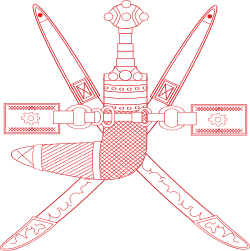| وزارة التربية والتعليم | |
 | |
| Agency overview | |
|---|---|
| Jurisdiction | Government of Oman |
| Headquarters | Muscat 23°36′25″N58°32′25″E / 23.60694°N 58.54028°E |
| Agency executive | |
| Website | Official website |
 |
|---|
|
| Cabinet |
The Ministry of Education (MOE), formerly known as Ministry of Education and Youth, is the governmental body in the Sultanate of Oman responsible for the educational system preceding university education (which is supervised by the Ministry of Higher Education). The Minister of Education in 2024 was Madeeha bint Ahmed bin Nassir al Shibaniyah. [1]